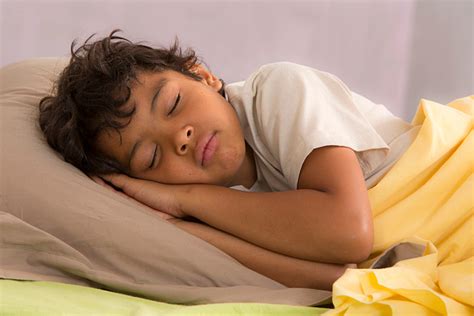The Importance of Sleep
Sleep is essential for our physical and mental health. It allows our bodies to rest and repair themselves, and it helps us to consolidate memories and learn new things. When we don’t get enough sleep, we can experience a range of problems, including fatigue, irritability, difficulty concentrating, and impaired judgment.

According to the National Sleep Foundation, adults should get 7-9 hours of sleep per night. However, many people don’t get enough sleep on a regular basis. In fact, a recent study found that only about one-third of adults in the United States get the recommended amount of sleep.
There are a number of factors that can contribute to sleep deprivation, including:
- Stress: Stress can make it difficult to fall asleep and stay asleep.
- Anxiety: Anxiety can also lead to sleep problems.
- Depression: Depression can cause insomnia and other sleep disturbances.
- Medical conditions: Certain medical conditions, such as insomnia and sleep apnea, can make it difficult to get a good night’s sleep.
- Medications: Some medications can cause drowsiness or insomnia.
- Caffeine and alcohol: Caffeine and alcohol can both interfere with sleep.
- Poor sleep habits: Poor sleep habits, such as going to bed at different times each night or not getting enough sunlight during the day, can also lead to sleep problems.
The Consequences of Sleep Deprivation
Sleep deprivation can have a number of negative consequences, including:
- Increased risk of accidents: Sleep deprivation can increase the risk of accidents, both at work and at home.
- Impaired job performance: Sleep deprivation can impair job performance, leading to decreased productivity and increased errors.
- Increased risk of health problems: Sleep deprivation can increase the risk of developing a number of health problems, including obesity, heart disease, and diabetes.
- Mental health problems: Sleep deprivation can also lead to mental health problems, such as depression and anxiety.
How to Get a Good Night’s Sleep
There are a number of things you can do to improve your sleep hygiene and get a good night’s sleep, including:
- Establish a regular sleep schedule: Go to bed and wake up at the same time each day, even on weekends.
- Create a relaxing bedtime routine: Wind down before bed by doing relaxing activities, such as reading, taking a bath, or listening to calming music.
- Make sure your bedroom is dark, quiet, and cool: These conditions are ideal for sleep.
- Avoid caffeine and alcohol before bed: Caffeine and alcohol can both interfere with sleep.
- Get regular exercise: Exercise can help you to fall asleep more easily and sleep more soundly.
- Don’t smoke: Smoking can damage your sleep quality.
- See a doctor if you have trouble sleeping: If you have trouble sleeping on a regular basis, see a doctor to rule out any underlying medical conditions.
Conclusion
Sleep is essential for our health and well-being. When we don’t get enough sleep, we can experience a range of problems, including fatigue, irritability, difficulty concentrating, and impaired judgment. By following the tips in this article, you can improve your sleep hygiene and get a good night’s sleep.
Additional Resources
FAQs
1. How much sleep do I need?
Adults should get 7-9 hours of sleep per night.
2. What are the signs of sleep deprivation?
Signs of sleep deprivation include fatigue, irritability, difficulty concentrating, and impaired judgment.
3. What can I do to improve my sleep hygiene?
You can improve your sleep hygiene by establishing a regular sleep schedule, creating a relaxing bedtime routine, making sure your bedroom is dark, quiet, and cool, avoiding caffeine and alcohol before bed, getting regular exercise, and not smoking.
4. When should I see a doctor about my sleep problems?
If you have trouble sleeping on a regular basis, see a doctor to rule out any underlying medical conditions.
5. What are some common sleep disorders?
Some common sleep disorders include insomnia, sleep apnea, and restless legs syndrome.
6. How can I get help for a sleep disorder?
There are a number of resources available to help people with sleep disorders, including sleep clinics, support groups, and online resources.
